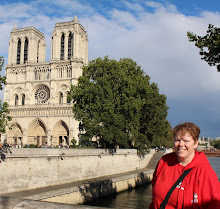Most of my blog posts these days seem to come from other blogs. There is a message in there I am sure. I was reading Will Richardson's blog and he referred to a study which stated the following:
"And please, send your administrators and IT folks this message in 42-point bold type:
Social and recreational new media use as a site of learning. Contrary to adult perceptions, while hanging out online, youth are picking up basic social and technological skills they need to fully participate in contemporary society. Erecting barriers to participation deprives teens of access to these forms of learning. Participation in the digital age means more than being able to access “serious” online information and culture. Youth could benefit from educators being more open to forms of experimentation and social exploration that are generally not characteristic of educational institutions. (Emphasis mine.)
Finally, sit down, and mull this concept over:
Youth using new media often learn from their peers, not teachers or adults, and notions of expertise and authority have been turned on their heads. Such learning differs fundamentally from traditional instruction and is often framed negatively by adults as a means of “peer pressure.” Yet adults can still have tremendous influence in setting “learning goals,” particularly on the interest-driven side, where adult hobbyists function as role models and more experienced peers."
It made me think that the blocking of YouTube, Facebook, and other sites is perhaps not the correct way to go. I know I may be preaching to the choir but I believe, without exposure to and education by educators, we're creating students who create their own digital citizenship rules and those may not be the ones we want to see in the future. I find in my own K-6 world that I often don't face the same challenges as my 7-12 colleagues but when should education on digital citizenship really start? Personally I feel high school is too late. Any other takes out there in the Blogosphere?
The Web That Was, Is
2 days ago



2 comments:
In most K-6 environments in which I have worked, students do not get unlimited and unsupervised access to the internet. Since it is always possible even with filtering to get onto some questionable sites, my feeling for K-6 filtering is "Why bother?" When you do get some unfortunate internet experiences, it is a wonderful time to start talking about digital responsibilty.
By the way, did anyone read the Star-Phoenix this weekend? One of the main stories was about swinging (aka "the lifestyle") in Saskatchewan. We allow newspapers into our schools, but really, do we want our kids reading THAT?
Oh Morag, I could not agree more. I think you are preaching to the choir. In my experience, blocking these sites, just turns your technology student leaders into technolgy student sneaks for hire. None of the sites "blocked" are blocked completely. So, all we really are doing is raising that a barrier in front that possiblity of ustilizing these students strengths for the good of the school. They could, if they weren't fighting against us, be put in leadership roles to help teach digital citizenship in ways people of authority can't.
Post a Comment